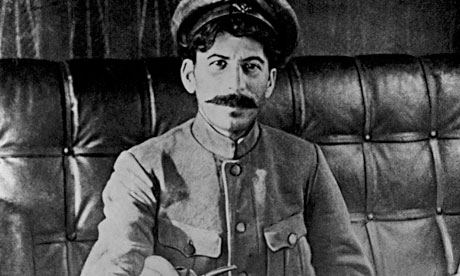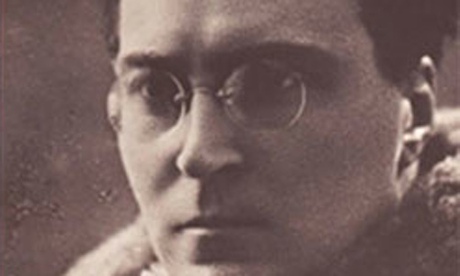At university in the early 1980s, I was privileged to witness an exchange between a friend of mine and the kind of doctrinaire prick who was even then still pretty easy to find if you went into the right student bars. The doctrinaire prick had, in the course of an interminable political rant, asserted that as a true communist, he would be happy to exterminate all capitalists for the sake of the revolution. My friend said: "My dad runs a small hotel in Epping. Would you shoot him?" "Yes, of course," said the DP. "Charming," said my friend. Which, for me, settled the matter.
That, I am very happy to say, was my only real brush with Stalinism. Millions upon millions of others were not nearly so fortunate. There really were people who would murder for the sake of a political end. And with Stalinism a frightening element of arbitrariness was added to the policy, so that even blamelessness was no protection against Uncle Joe's homicidal whims.
In a sense, then, it is nothing short of a miracle that Victor Serge survived as long as he did. He died in exile, in Mexico, and before his time, though at least not in the manner of Trotsky. But when you write, in Moscow in 1933, as he did, a manifesto containing phrases such as this, you might expect such a fate: "Man must be given his rights, his security, his value. Without these, there is no socialism. Without these, all is false, bankrupt, and spoiled." And: "I will not consent to the systematic falsification of history." And: "No real intellectual enquiry is permitted in any sphere. Everything is reduced to a casuistry nourished on quotations ..." These were the three essential points, "superior to all tactical considerations", on which he declared himself to be "an avowed and unequivocal dissident, whom only force can silence".
This is a man of great courage, then, and utter decency. If there is a note in those words which reminds one of Orwell, bear in mind that Orwell didn't have to labour under the constant fear of the state murdering him, or his wife, or his child. Orwell did his bit by Serge, though, trying to get him published. But by then Serge was political poison: too leftwing by far for western governments and, as we have seen, rather too keen on freedom of thought and speech for the state communism of the time.
One would expect the victim of two opposing revolting orthodoxies (the Nazis, it hardly needs to be said, were not exactly fans) to be unorthodox himself, and in a way he was: a poet, novelist and lifelong radical, he cut his teeth in the anarchic milieu of French and Belgian revolutionary politics of the early 20th century. Those who would see in our own era, in the confused but well-meaning confrontations of the Occupy movement and its outrageous repression by the authorities, an echo of those times, would do well to read this. ("The only example we had till then was that of the Paris Commune, which, looked at closely, was not very encouraging: indecision, rifts, empty chatter, personality clashes between nonentities ..." and so on.)
Enthusiasm took Serge to revolutionary Soviet Russia, and it was there that he began to notice that Bolshevik tyranny, rather than general incompetence, was going to be the problem (like Orwell, he despaired of the attraction of radical politics to people who refused to eat meat, or salt, or anything but fruit). Memoirs is a document that is essential, above all, as a denouncement of oppression, an eye-witness account, written in heat and at speed, but with the talent of the true writer, of what it was like to be at the heart of the machine – and to stand up to it.
This is the most complete edition yet published in English (Sedgwick's first, abridged translation appeared nearly 50 years ago). How it has taken so long to appear is one of those unfathomable mysteries. (Is it because some people can't comprehend a humane revolutionary?) Anyway, here it is at last, and anyone who cares about justice and freedom of speech should have a copy.









